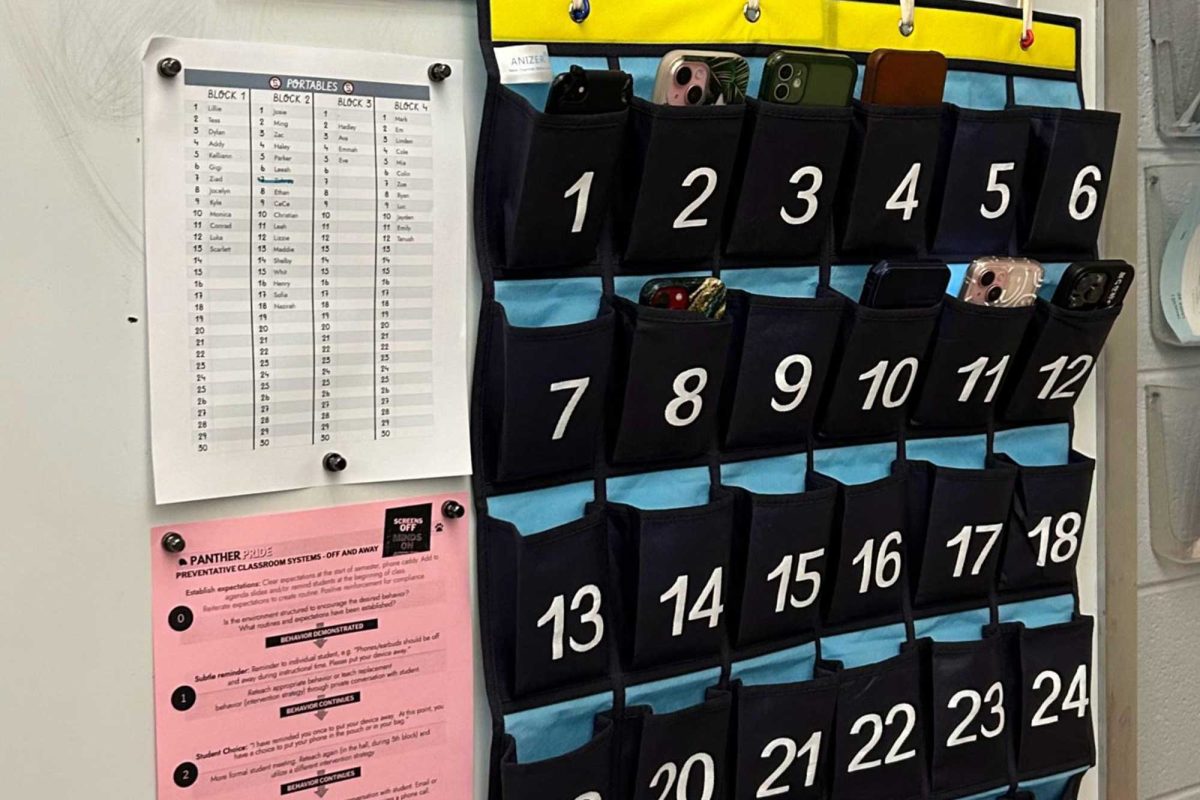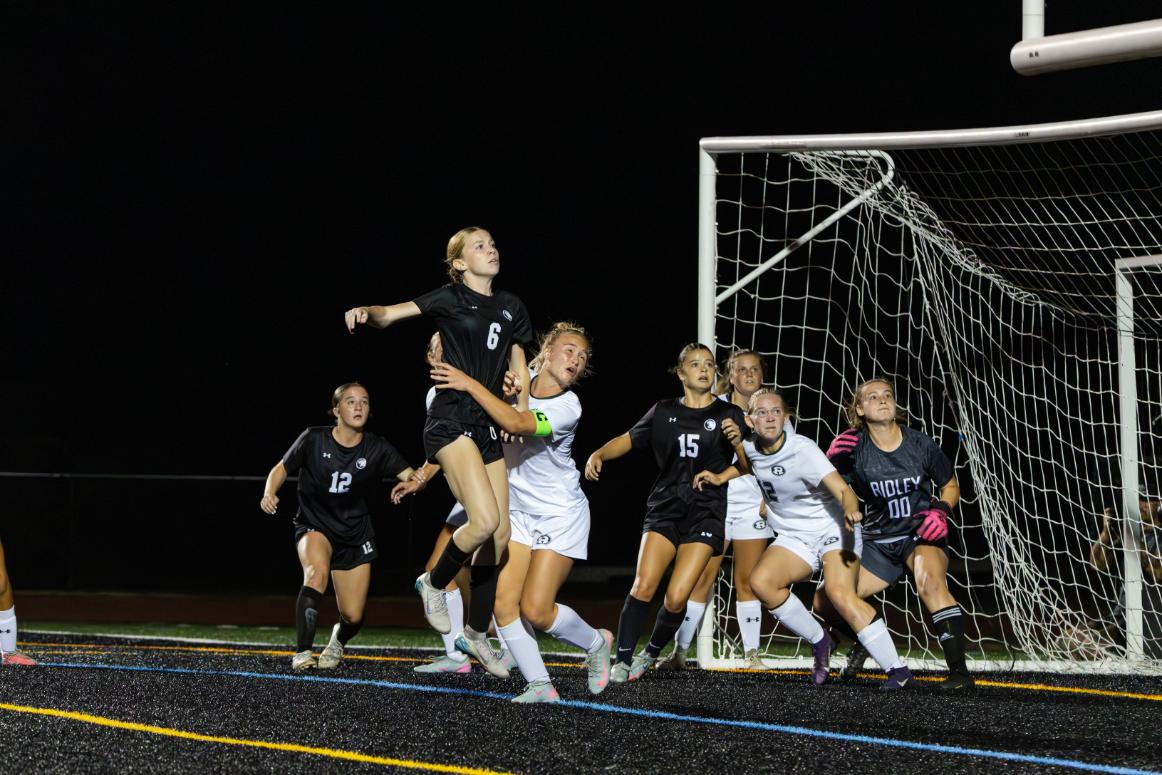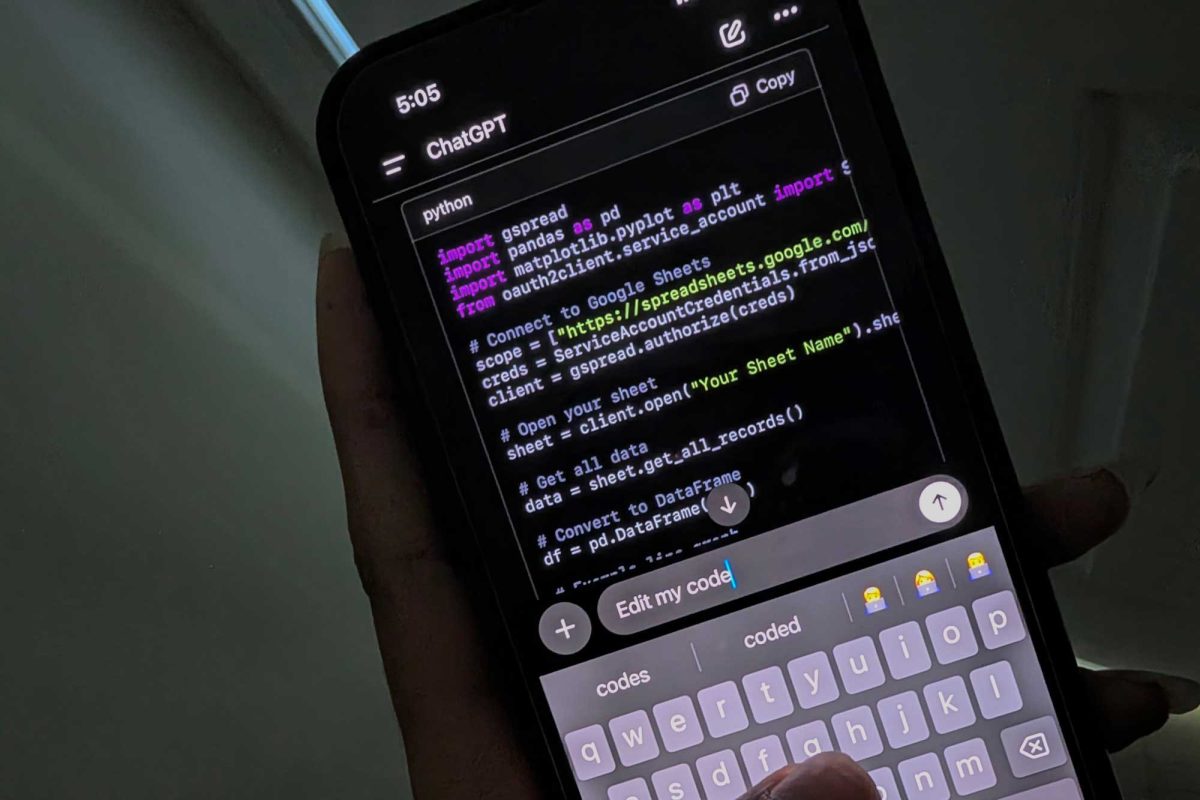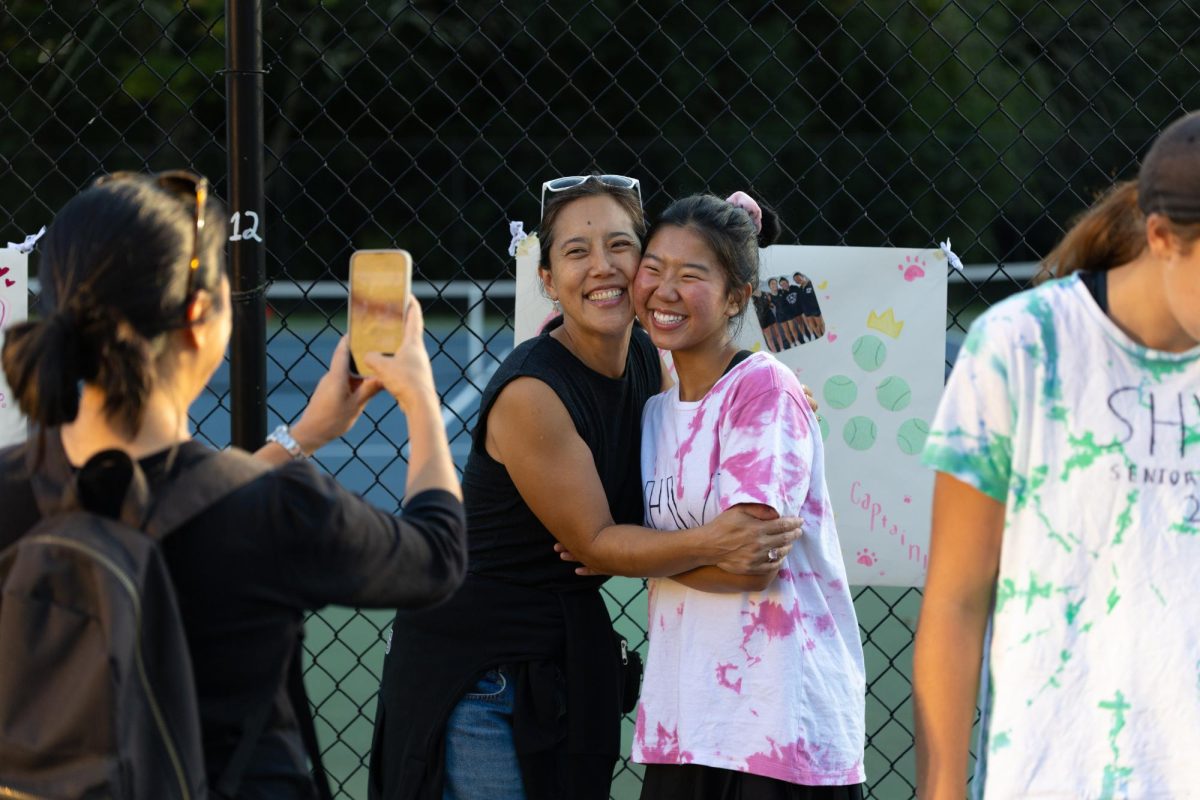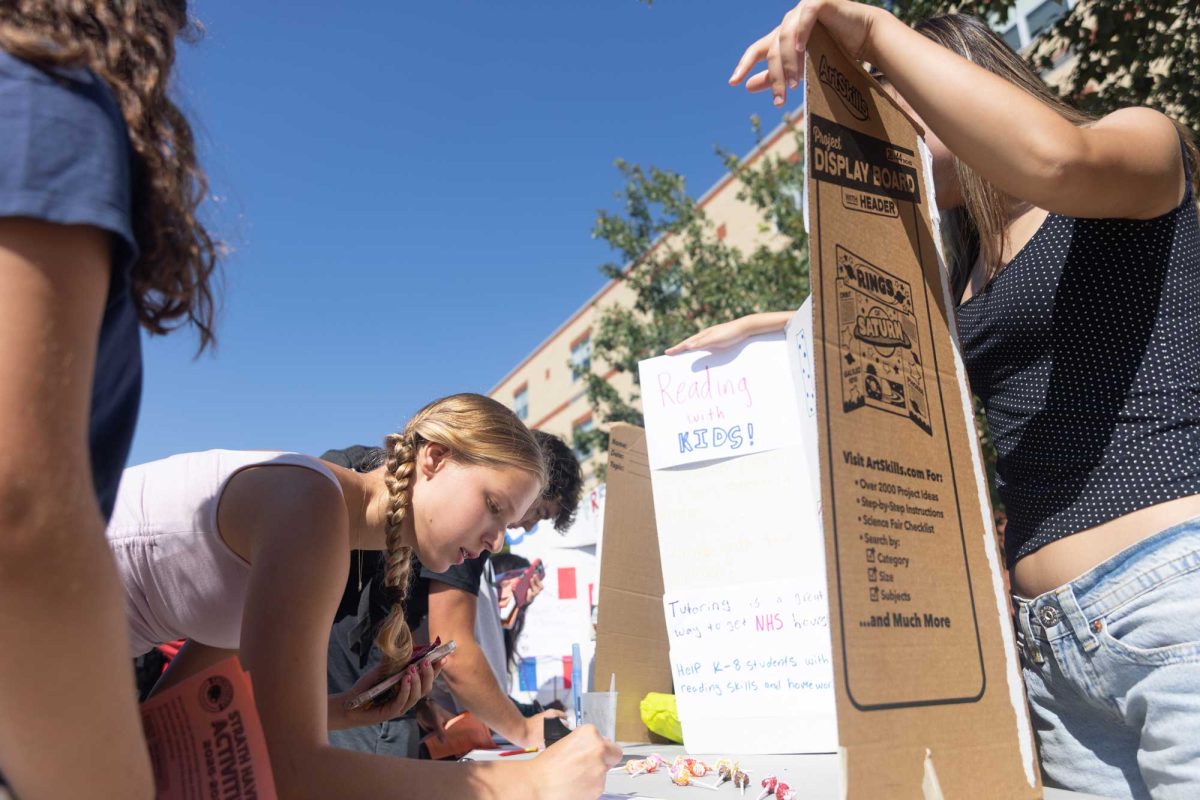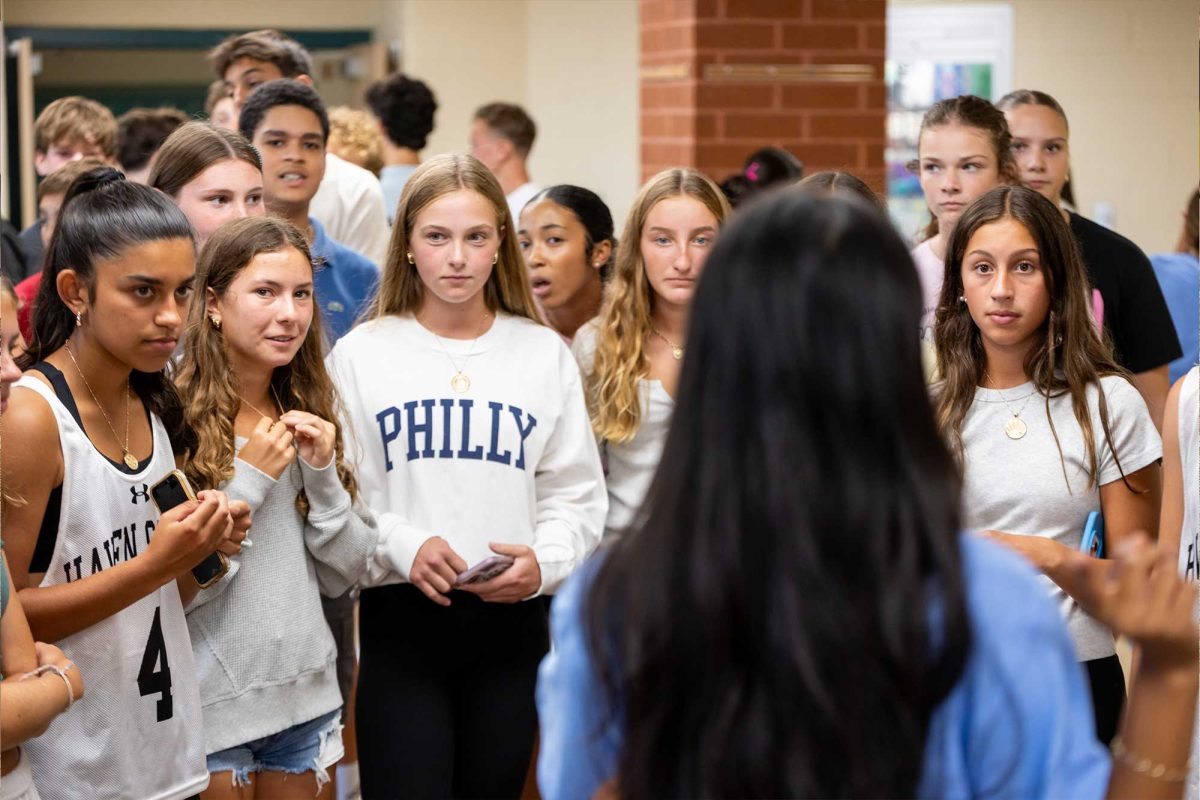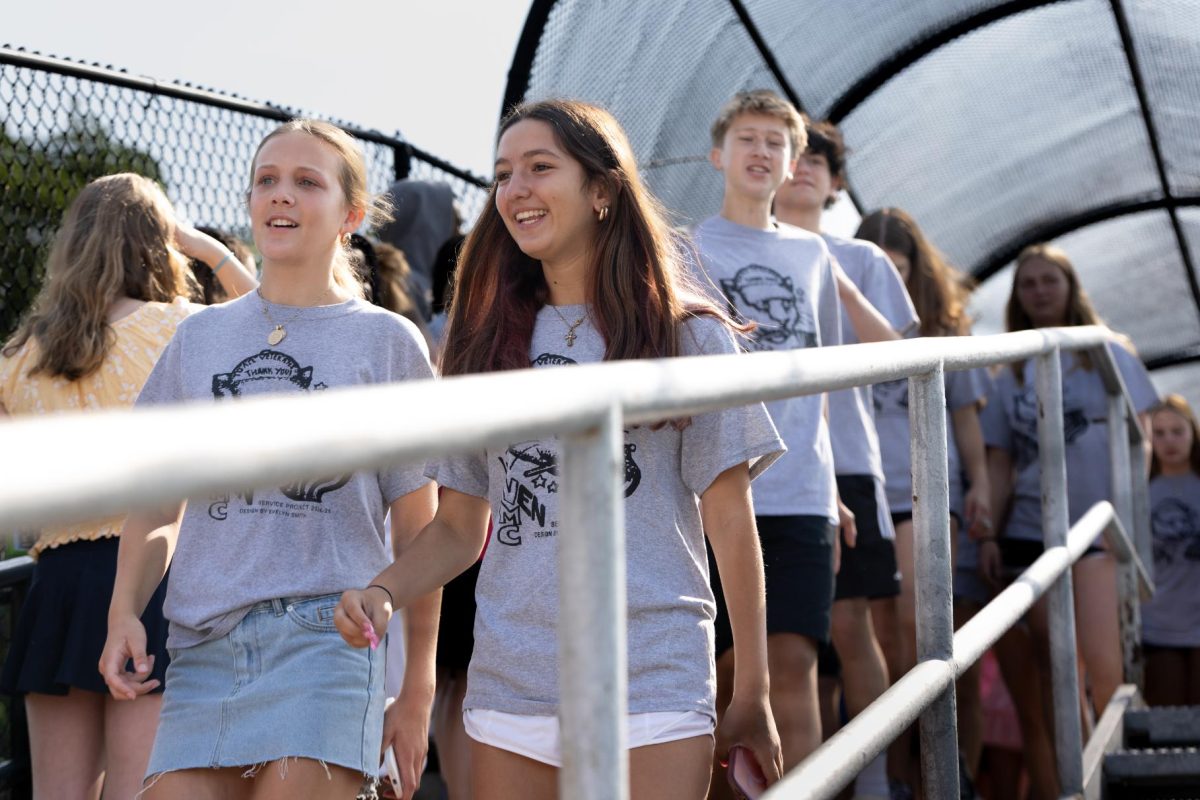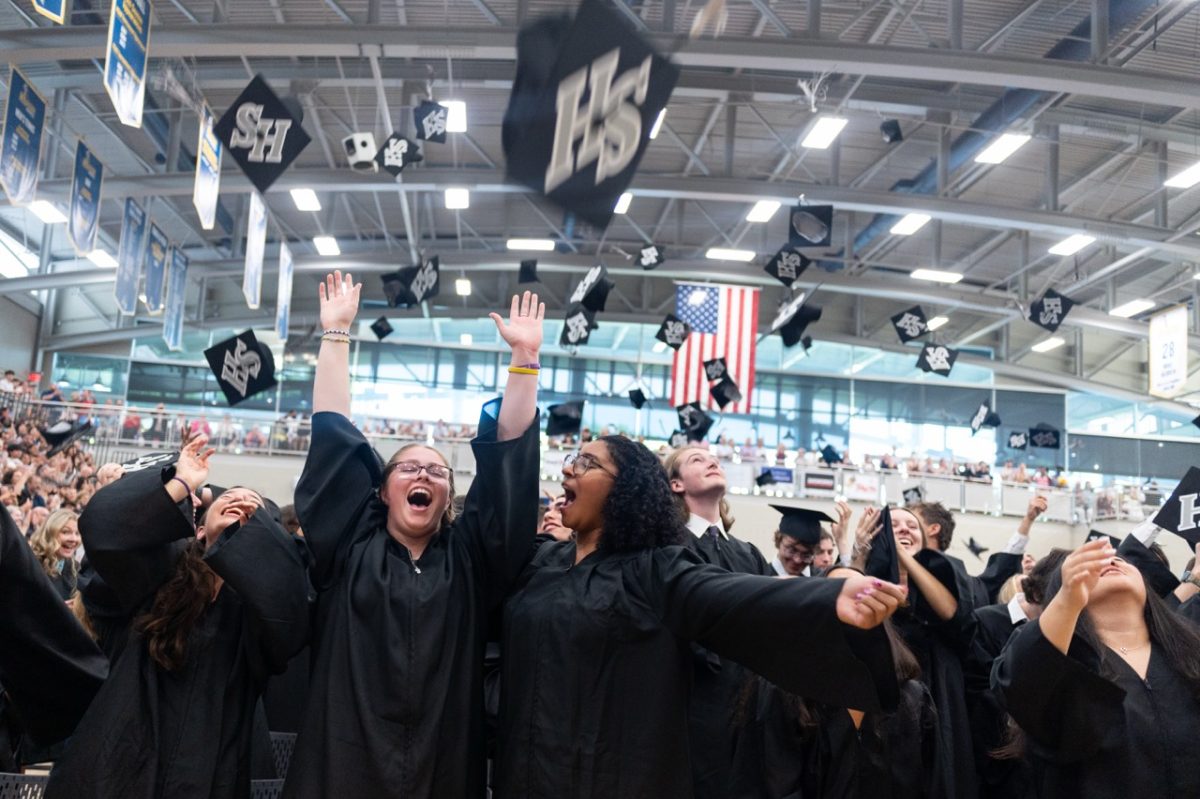For many students, the new cell phone policy is a bittersweet thing, having narrowly avoided a total ban while still tightening classroom enforcement and promising a revisitation of the policy next year.
Approved at the April 28 school board meeting, the policy and administrative regulation was a product of several contentious school board and committee meetings, including one on March 12 that even drew students to speak out against a cell phone ban advocated by many community members.
The policy, which passed unanimously, did not ban phones during lunch or between classes as proposed by community members from Haven Hold the Phone, a community group focused on halting phone use in WSSD.
“I think we’ve come to a spot where we’ve got a policy that I think is enforceable as it is written, which for me was incredibly important,” school board member Kelly Wachtman said at the April 28 meeting.
While not a total ban, the administrative regulation presents an array of measures aimed at curbing electronic device use in class, namely mandating the storage of electronic devices in “designated storage areas” during class. Caddies have sprung up in almost every classroom in the school as part of the “Screens Off, Minds On” initiative that began this school year.
According to principal Mr. Andrew Benzing, such an area could include caddies but also potentially backpacks, a possibility the administration is wrangling with.
“We want to give the teachers [and] the kids a chance to show that they can do this without [requiring caddies],” Benzing said. “But it might be at a point where the policy says ‘designated storage area’ doesn’t include a backpack, in which case we have to pivot. We’ll have to look into that more. Right now, the way I interpret it is [that] it could be anything that we approve.”
Sophomore Joy Yang, who was recently elected as one of Student Council’s school board representatives, feels that the term “designated storage area” is overly vague.
“I’m glad they actually listened to students and did not fully ban [phones] at lunch and between classes,” Yang said. “But it’s kind of ambiguous.”
The administrative regulation also includes a progressive discipline tree that involves warnings for the first two violations and harsher consequences like parental contact and potential detention or suspension for fourth and fifth violations, along with referral to counseling for repeat offenders.
“It’s [a] progressive response [so that for] every, for lack of a better word, infraction on a student’s level, we’re hopeful that lets [us] have a conversation,” Benzing said. “Let’s come up with why you’re doing this. Let’s come up with a plan.”
According to Benzing, the harsher consequences are meant to serve as a last resort, a view in line with the overall focus on education surrounding electronic devices, another component of the regulation. Efforts like these could intersect with recent administrative initiatives like Wellness Wednesdays and the ‘Stall Stories’ literature implemented in the bathrooms.
“That’s where a lot of our efforts [will be] this summer, are to expand our educational program, to have them read articles, to have them learn a little bit more about it,” Benzing said. “We’re talking a lot about challenges [for] the school, they have a day where there’s no phones out at all, and you’re forced at lunch to interact with the people around you, like [a] kind of a ‘day off’ challenge.”
In conjunction with the tighter rules around phones in class are tighter rules about AirPods and smartwatches in class as well. The regulation explicitly states that calling or texting with watches is prohibited. For many students, the loss of ability to communicate, whether that be on a phone or watch, signifies a loss of safety and convenience.
“If there’s an emergency, you’re not allowed to grab anything, but if your phone’s nearby you’ll be able to contact someone,” sophomore Juliette Loyd said. “A lot of people also forget their phones if they’re in the caddy. A lot of people just forget about it, and I’ve seen so many phones left in caddies, and that’s not good.”
Other students are emergency contacts for others, further escalating student concerns about phones in emergency situations.
“I personally don’t think it’s a good idea, just because I think the whole point of having a phone is to be able to contact anybody in any sort of emergency,” junior Aidan Taggart said. “If you’re an emergency contact for somebody like I am, if someone calls you and you don’t have your phone, that could be a risk for someone else or even yourself.”
Nonetheless, relief was a common sentiment among students due to a total ban being avoided.
“I think the new cell phone policy is a step in the right direction, by which I mean towards liberty and digital independence for students, which I think is an important value that’s not considered enough,” sophomore Henry Hewitt, who started a petition against a total ban, said. “And I think this policy is good because it doesn’t include any of the administrative overreach that the proposed policies from other community members suggested.”
However, phones at lunch and between classes may not be totally in the clear.
Four board members, including a majority on the policy committee, were previously in favor of a total ban but chose to advance the policy conditional upon periodic reviews starting in six months, something that concerns Benzing.
“I just don’t want to re-legislate everything each time,” Benzing said. “As long as it’s a matter of micro fine-tuning things, I’m all for that… to keep that line of communication open is important. Talking to teachers, ‘how’s it going?’ It’s important to hear from students as well, like, how are you finding this change in policy?”
Yang intends to include the topic of the cell phone policy in forms she will send out to students, one of the main ideas of her campaign.
Benzing also believes that cell phone use can be addressed holistically through engaging students, something he feels the students must also help to do.
“It’s a part of the responsibility of being a learner that you get in there and get really engaged, and you get more out of it, the more you put in,” Benzing said.
The policy is set to be implemented at the beginning of next school year.




